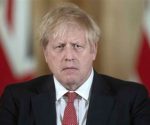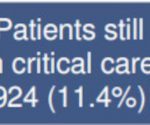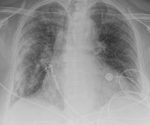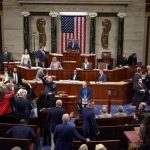Wuhan residents comment on Covid-19 coronavirus and authoritarian coping measures: “it’s all fake”
The Guardian article that is the study of this piece was written by a Lily Kuo, and published Friday 6th March with the headline ‘Fake, Fake’: senior Chinese leader heckled by residents on visit to coronavirus city. It reported on the reaction by Wuhan residents to a visit (on 5th March) to the place that saw the emergence of NCIP, novel coronavirus-infected pneumonia (now misleadingly known as Covid-19 [see here]), by a top Chinese official, Vice-premier Sun Chunlan, evidently to examine the measures to deal with the extent of the spread of the illness and the progress towards its diminishing.
The people of Qingshan, a district of Wuhan, all shut up in quarantine conditions in their “residential compounds” made their unhappiness known from their quarters by shouting, from the window openings, into the streets where Chunlan was passing. Depending on how one would like to interpret them, the feelings expressed in this venting by the frustrated residents was either uncomfortable listening for the Chinese Government (which is no doubt the way the Guardian would like its readership to see things), or inconvenient, not to mention seriously undermining for the Covid-19 narrative upon which the UK Government, in the name of coping with a so-called virus pandemic, is about to install draconian policy that represents an intolerable infringement of English civil liberties.
Qingshan district, like others in Wuhan, was in lockdown at the time of publication of the Guardian article. People were “served” in their house arrest by the so-called “neighbourhood committee”. If the reader is familiar with socialist sovietism he will appreciate that these committees, by their activity, appear to be the local officialdom amongst citizenry which is appointed by the Party to manage and spy on everyone. Although no place on Earth is short of native tin-pot dictators from which to create neighbourhood committees, these people don’t necessary need to be of the local community, but instead could be shipped in from outside – which could exacerbate certain tensions, of which this piece is about to elaborate upon.
In this time of emergency, the neighbourhood committees of Wuhan are tasked with distributing “necessities”, says the Guardian, “like medicine, food and fresh vegetables”. The committees also make sure that residents go to hospital and into quarantine if required. While British police are about to be given similar so-called emergency powers to forcibly conduct citizens to medical facilities, the UK Government has shied away from requiring its Little Hitlers to extract temperature checks. In Qingshan these are performed on residents on a daily basis, and one must suppose that it is a measure as part of a mechanism by which a suspect can be condemned as a health hazard, and by which the enforcing agency, in this case the committee, can be empowered to “arrange” hospital visits, as the Guardian kindly expresses it. We could say that at least British police will have to have grounds to act against a “health criminal”, and then must seek the judgement of a medical professional before quarantine (or prison) can be apportioned, but so what? It all amounts to the same thing. In fact, the UK Government must be kicking itself that David Cameron became side-tracked with Brexit so that he couldn’t implement the Big Society: Britain could have had its own thermometer-armed neighbourhood committees already, and police could have been spared becoming even more despised and detested than they already are.
In any case, the Chinese committees have been introduced here because the problem in Qingshan, says the Guardian, has probably got something to do with them:
…many residents have complained to the Guardian and other media that the community workers have not provided needed assistance. Community workers have complained that they have been overwhelmed.
It was this frustration that boiled over, implies the Guardian, during Sun Chunlan’s visit, and residents shouted the following phrases out of the window (imagine the scene from the film Network): “‘fake, fake,’ ‘it’s all fake,’ as well as ‘we protest’”.
However, the Guardian writer catches hold of another word used by residents, “formalism,” to assist her readership towards a particular interpretation. Formalism, it is explained, is “a term that has [been] employed frequently recently to criticise ineffective measures taken by government representatives for the sake of appearances.” The idea that we are perhaps supposed to gain, especially when there is an attempt to define the problem as one of resources versus expectations, that while the Chinese Government’s coping measures are intended to be effective, they aren’t quite cutting the mustard.
But this wasn’t what was being said, especially when one doesn’t separate out “formalism” from the other slogans. The residents of Qingshan were protesting about the pantomime constructed around the concept of (the coronavirus) SARS-CoV-2 as the causation agent in NCIP. Now, the reader will ask how it is that this could be construed, and the answer lies in the overt declaration of protestation. Before the advent of Covid-19, people in Wuhan had been mobilising a protest movement against the chronic air pollution that they evidently felt was harming them, and which is probably the key factor in so-called NCIP. In the Chinese Government’s response to NCIP, the Qingshan residents have seen an avoidance of the main issue. Instead, a contagious disease has had all the blame heaped upon it, and consequently the Qingshan residents have found themselves under house arrest in their “residential compounds”. Who would be happy about this? The “ineffective measures taken by government representatives for the sake of appearances” is the prison treatment of residents to project the myth of pneumonia by virus. Note well: “it’s all fake” say the Qingshan residents.
Of course, this is a tricky subject to cover for British corporate-media given that the “underlying health conditions” that are always associated with death with Covid-19 in Britain (by definition of NCIP) must be pneumonia, complication of pneumonia, or aspects of pneumonia (and actually, then, pneumonia as the primary cause of death). If the people had been panicked (by a concerted and depraved propaganda campaign) into buying huge quantities of toilet paper, and volunteering to “self-isolate”, and insisting that their children don’t attend school, and allowing themselves to be detained by police on suspicion of being ill, only then to discover that the British Government has arranged things with the NHS so that pneumonia deaths can be characterised, at least as far as public perception is concerned, as all being cases of demise by contagious virus, then imagine the vast amounts of hell to pay. As things stand, and as stupid as they generally are, enough people are not too far away from a clear appreciation of reality when they read that a mother whose baby tested positive for “coronavirus” had been admitted to hospital as a suspected pneumonia case, and when they read that Government wants industry to build more ventilators for provision to the NHS; in covering this latter issue, the BBC does a remarkable thing by never mentioning the word “pneumonia” in the whole of the article, let alone this crucial sentence: “Ventilators are vital in the treatment of patients whose lungs have been attacked by the infection.”
However, as risky as it is to publish news that invites a reader to have an epiphany, British corporate-media, with the Guardian being a significant section of it, would see coverage of the Qingshan incident as a crucial necessity for control of agenda and perception management. Videos of the incident were being posted online and thus were appearing in avenues of media that can’t easily by censored so that they could come to the attention of Britons. As such, the case required intervention from the voice of the establishment in order to provide interpretation. It is quite ironic, then, that in the piece the Guardian writer has the reader suppose, through the opinion of an unknown group of people called “observers”, that:
…state media may be trying to co-opt discussion of the videos, which circulated widely online, and provide their own narrative of events. The incident also provides the central government an opportunity to show it responding to public sentiment, after a wave of public anger over the suppression of early warnings of the virus.
While the Chinese Government will have had its own reasons to make a pantomime out of Covid-19 (i.e. stymie protest), it appears that the British Government wants to use it as an excuse to take the heat out of the economy (indeed, the entire “west” appears to have government intent on economic spoiling) – and this possibility is to be dealt with at FBEL at another time with reference to the “silent weapon” of “inductance” for economic dominance (see here). There couldn’t be a clearer indication of the intention to cause economic disruption than in the message that was being telegraphed by corporate-media ahead of the start of the working week: Coronavirus: Millions of workers to stay home on Monday with country on war footing. The depravity of the Mirror headline is clear, and the reader must be aware of the technique. The Government wants people to soak up the fear porn, succumb to it, and in this case volunteer to let the economy go to hell in a hand cart. What to do in response should be clear: do not volunteer, not for one thing that is said to be required if it has been made manifest out of psychological manipulation (which includes massaging a sense of patriotic duty – hence the invocation of a nation at war). Do not even get ill with a cold which they can exploit in terms of progression of their purpose.


















